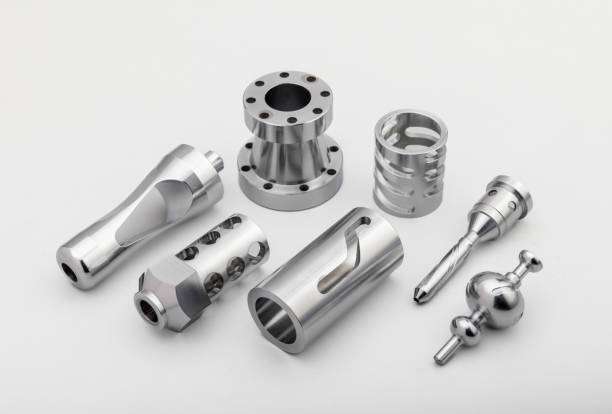
In the workshop of Atelier Lune in Paris, Emily, a designer specializing in contemporary art objects, stared at her computer screen with a furrowed brow—she had just finished a carved wooden lunar ornament with intricate crater textures and a glowing epoxy resin interlayer. But after contacting three traditional carpenters, all of them shook their heads: “This design is too complex, and you only ordered 10 pieces. We can’t do it.”
Emily’s dilemma is a common pain point in the French creative product industry. As a “creativity-driven” sector, the core competitiveness of creative products (such as art ornaments, custom gifts, and design furniture) lies in personalization and craftsmanship, but traditional processes often leave these ideas “trapped in the computer”:
Most orders for creative products are 1-50 pieces (e.g., designer limited editions, brand custom gifts). Traditional factories need to make molds (costing thousands of euros), which is not cost-effective for small batches. Emily said: “I contacted 5 factories, and all of them told me ‘we need at least 100 pieces,’ but my client only ordered 10.”
Creative product designs are becoming more “daring”: carved animal sculptures, curved resin jewelry, mixed-material (wood + metal) ornaments… Traditional processes (such as sawing and casting) can’t handle these structures. For example, the crater on Emily’s lunar ornament is only 0.1mm wide—traditional carpenters can’t achieve such precision with a saw.
Creative products often use wood (oak, walnut), resin (epoxy), metal (aluminum, copper), and other materials. Traditional processes have limited capabilities in handling these materials: wood is prone to cracking, resin is prone to bubbling (easy to bubble), and metal is hard to shape into complex curves.
Creative products have a short lifecycle (e.g., holiday gifts need to be delivered 1 month in advance), and traditional processes take 2-3 weeks to deliver, which is too slow. Emily said: “My client wants the ornaments before Christmas, but traditional factories say ‘3 weeks’—that’s too late.”
Just as Emily was about to give up, she found a supplier specializing in 5-axis CNC machining. To her surprise, this choice brought her ideas to life:
5-axis CNC machines use multi-axis linkage (X, Y, Z axes + two rotary axes) to precisely mill the wood, completing the carved craters, curved surface, and epoxy resin interlayer groove in one go. When Emily received the finished product, she exclaimed: “I thought this design could only exist on my computer, but CNC made it happen, and the details are even clearer than I imagined!”
CNC machining doesn’t require molds—it directly mills from material blanks. Even for 10 pieces, the supplier delivered in 3 days, 5 times faster than traditional processes.
CNC machines can handle wood, resin, metal, and other materials, and avoid traditional process issues: high-speed tools prevent wood from cracking; cooling systems prevent resin from bubbling; carbide end mills easily shape complex metal curves. Emily said, “Now I can use any material for my designs—no need to compromise my creativity because of material limitations.”
CNC machines control tolerances to ±0.01mm (1/10 the diameter of a human hair). For example, the crater grain on the lunar ornament is exactly 0.1mm wide, matching the computer design perfectly. A client of Emily’s left a message: “This is more exquisite than I expected—at all like a work of art.”
After launching the CNC-machined lunar ornament, Emily’s studio received more orders: a brand ordered 50 custom gifts, and a client ordered 20 personal collection pieces. In just one month, the studio’s order volume grew by 20%, and customer satisfaction reached 95%.
Emily said: “CNC machining frees my creativity. Before, I had to think ‘can I do it?’ Now, I just think ‘how to design better?’”
If your creative business is facing similar problems, consider these four points when choosing a CNC supplier:
Choose a supplier with 1-50 piece small batch machining experience (e.g., designer limited editions, custom gifts)—they understand the needs of the creative industry and can handle small orders quickly.
Ask if the supplier has 5-axis CNC machines and cases of carved, curved, or multi-material products (like Emily’s lunar ornament). Without 5-axis machines, it’s hard to handle complex designs.
Confirm the supplier can handle your materials (e.g., wood, resin, metal) and ask about their processing methods (e.g., how to prevent wood from cracking, how to avoid resin bubbles).
Ask about the supplier’s small batch delivery time (e.g., how many days for 10 pieces). Choose a supplier that can deliver in 3-5 days to meet the lifecycle of creative products (e.g., holiday gifts).
In the creative industry, “creativity” is the starting point, but “implementation” is the key. CNC machining, with its precision, flexibility, and speed, allows small-batch, complex creative products to reach the market quickly, turning ideas from “computer screens” to “customer hands.”
If your creative business needs complex design, small batch, fast delivery machining services, feel free to contact us—www.simituo.com. We have 5-axis CNC machines, 10 years of small batch machining experience, and multi-material handling capability to help you turn ideas into reality.
After all, the charm of creative products lies in the perfect realization of “creativity.” And CNC machining is the “magic tool” that makes it happen.